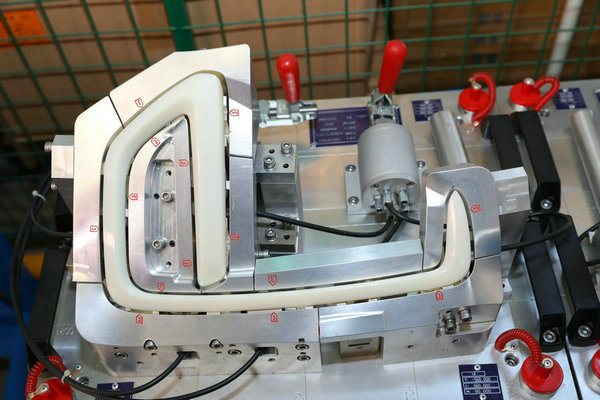Our commonly used automotive plastic mold plastic mater […]
Our commonly used automotive plastic mold plastic materials (hereinafter referred to as "plastics") are a collective term for all types of plastics. It has a wide range of applications. Therefore, the classification methods are also different. According to the purpose, it can be roughly divided into two categories: general plastics and engineering plastics.
General plastics: such as polyethylene (PE), polypropylene (PP), polystyrene (PS), modified polystyrene (for example: SAN, HIPS), polyvinyl chloride (PVC), etc., these are the most widely used daily The material, performance requirements are not high, and the cost is low. (Polyethylene PE)
Engineering plastics refer to some industrial-quality plastics such as mechanical parts or engineering structural materials. Its mechanical properties, electrical properties, resistance to chemical environments, resistance to high and low temperatures, etc. have superior characteristics, and can even replace certain metals or other materials in engineering technology.
Common engineering plastics: ABS, polyamide (abbreviated as PA, commonly known as nylon), polycarbonate (PC), polyoxymethylene (POM), plexiglass (PMMA), polyester resin (such as PET, PBT), etc. The four are the fastest growing, and are the four internationally recognized engineering plastics. (Polyoxymethylene POM) (Polyester resin PBT)
According to the process performance during heating, plastics can be divided into two categories: thermosetting plastics and thermoplastics. The molecular structure of thermosetting plastic is transformed into a network or body shape after being heated, and then solidified and formed. Even if it is heated, it cannot be softened again after it becomes hard. This material is characterized by hard texture, good heat resistance, relatively stable dimensions, and insoluble in solvents. Common thermosetting plastics include phenolic resin (PF), epoxy resin (EP), unsaturated polyester (UP), etc. Thermoplastics soften and melt under heating conditions, and are qualitative after cold failure.
www.xlpmould.net


Add: No.9 Hengtai Road, Tinghu Economic Development Zone, Yancheng City, Jiangsu, China
Tel: 0086-515-89806501
Fax: 0086-515-89806502
E-mail: [email protected]

 TOP
TOP